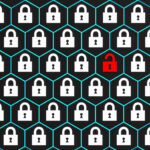Covid-19 burnout: is it a thing?
Stressed employees adapting and readapting to an ever-changing work environment through the Covid-19 pandemic has led to an increase in burnout.
Stressed employees adapting and readapting to an ever-changing work environment through the Covid-19 pandemic has led to an increase in burnout, according to recruitment agency Frog Recruitment.
A recent survey of 900 Kiwi workers showed that more than 64 percent feel more burnt out at work now, than they did prior to the lockdown beginning.
Burnout, officially recognised as an occupational condition by the World Health Organisation, is a syndrome occurring from chronic workplace stress that has not been successfully managed.
As New Zealand has moved down the Alert Levels, many in our workforce have seen the emergence of new routines and new places of work such as the kitchen table; forced reactional decisions, fostered a no-handshake hello, and seen virtual work relationships develop.
Virtual work is intertwined with technology and as our workplace has become more portable, the boundaries or personal time and work time have been blurred.
Jane Kennelly (pictured below), Frog Recruitment business relationship director says employers and managers feel a pressure to over-perform, and many have developed work and lifestyle habits that have blurred work and home life so much, that they struggle to separate the two.
“In many cases this means anxiety levels are through the roof. We have heard from clients whose sleep patterns have been disrupted, eating and drinking are on the up, and balance has become a thing of the past.
“It’s time to think about restoring the balance. To successfully thrive in our new world order that may mean working from home and the office, it is essential to plan a sustainable work and life flow.”
When canvassed, employees raised the issue of the disappearance of boundaries between work and life. One commented: “I feel I am on duty whenever I’m not asleep and on weekends as well.” Another said, “as a working parent, I find myself stealing a couple of minutes to send emails as I am getting dinner ready.”
Organisational psychology expert Jane Davis from The Flourishing Institute says research is starting to emerge internationally showing there are increases in anxiety, depression and post-traumatic stress due to Covid-19.
“Burnout seems to be more prevalent and many employees are experiencing fatigue and exhaustion due to prolonged stress. Right now, it is very important for leaders to listen deeply to their team members and understand their personal situations. Focus on meeting their needs; particularly the psychological need to feel competent, the need for control, and social needs,” says Davis.
Kennelly suggests a proactive stance be taken by employers and employees to acknowledge the merging that has occurred and agree new healthy work habits that drive an environment where both results and balance are achieved.
Here’s her five-step plan for overcoming burnout.
- Acknowledge the Situation
The last three months have been a rollercoaster for employees and employers. Tough decisions have had to be made, which has increased stress on all sides of the work spectrum. For those working in harder-hit hospitality, travel and events sectors, there is uncertainty to when their stress will end.
In general, our response has been to work longer hours and do whatever it takes to help, to go the extra mile and to give our all – coupled with making-do in the home work setting where the demands are high and resources are low.
- Spot the signs.
Burnout is a gradual process. It can start with complete commitment to the job at hand, compulsion to prove oneself, high productivity levels and readily accepting responsibility despite the onset of stress beginning to creep in. Some days become more difficult than others, optimism wanes and stress symptoms appear such as lower levels of energy, and efficiency, reduced motivation, headaches, fatigue, irritability, and frustration.
When work overload is chronic, which is how people have described their ‘work from home’ in recent months, there is little opportunity to rest, recover, and restore balance.
- Introduce prevention strategies.
It is important to identify employees who are the most at risk e.g. overachievers, working parents, ‘yes’ people. Start with designing prevention strategies at an organisation level then customise it to individuals to match their situation.
· Provide clear expectations for all employees and make sure that each person understands these expectations.
· Check that employees have the necessary resources and skills to meet expectations.
· Provide ongoing training to maintain competency.
· Reinforce their value to your organisation and their contributions to the organisation’s goals.
· Set reasonable work hours. People without good boundaries need to be checked.
· Assess the workload for those who feel pressured to beyond normal business hours.
· Set reasonable and realistic expectations. Be clear as to which activities require the highest standards and when it is okay to lower the bar and still meet business needs.
· Foster social support and respect within and among work teams.
· Encourage and support physical activity throughout the workday.
· Strongly encourage the taking of breaks away from the work environment.
- Leaders leading the way.
Positive mental health starts at a company level with leaders paving the way by showing support for physical activity throughout the day, taking breaks away from the workplace and working during work hours only.
When a manager replies on the team to work after hours, it can give the impression that you need to work outside of your normal hours to succeed. Now, with many employees working from home, the problem is exacerbated further. Kennelly says, “An email notification arriving in at 8pm can result in an immediate response. And so, the vicious circle develops that sees more work occurring ‘just for a couple of hours’, every night.
- Design a recovery plan.
Even with the best plans in place, Kiwi employers won’t be able to stop burnout, however learning to avoid unhealthy habits leading to burnout does require regulating the ‘working from home regime’. Establishing a new balance will result in higher productivity, happier employees, and lower turnover.
Here are three elements to include in a plan:
- Know how to recognise and celebrate your employee’s wins and successes. Feeling valued at a team and organisational level will fight a loss of confidence.
- Rethink the work relationships and task allocations within the team. Focussing on what people do best will reduce cynicism and anxiety.
- Assess and prioritise workload with team members so it is manageable. Provide clear expectations to foster motivation and sense of accomplishment.






